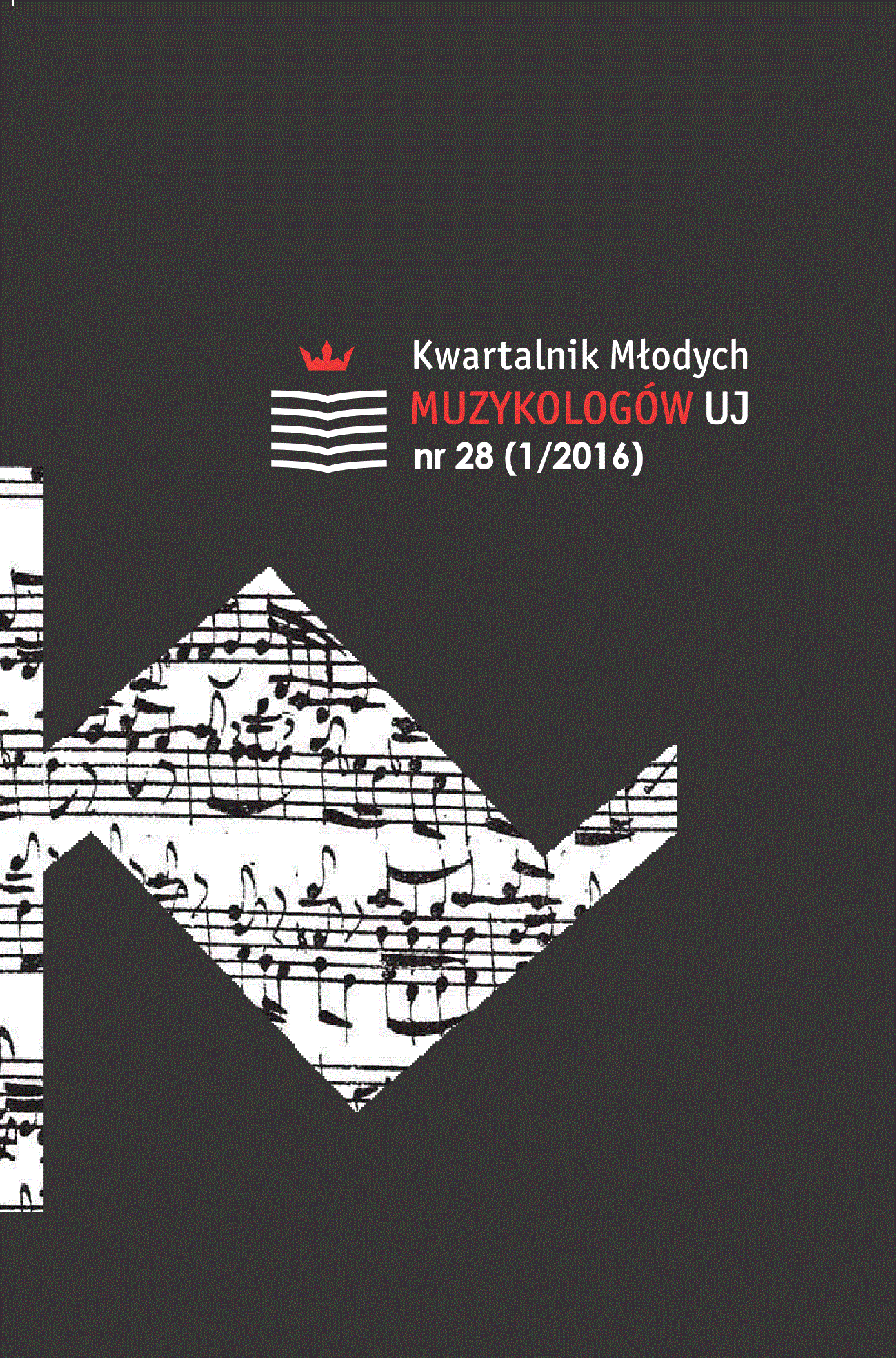Muzyka polska w repertuarze Leopolda Stokowskiego
Polish music in the repertoire of Leopold Stokowski
Author(s): Oskar ŁapetaSubject(s): History, Social Sciences, Fine Arts / Performing Arts, Music, Essay|Book Review |Scientific Life, Sociology, Social history, Recent History (1900 till today), Sociology of Culture, Sociology of the arts, business, education, Pre-WW I & WW I (1900 -1919), Interwar Period (1920 - 1939), WW II and following years (1940 - 1949), Post-War period (1950 - 1989), Cultural Essay, Sociology of Art
Published by: Koło Naukowe Studentów Muzykologii UJ
Keywords: Leopold Stokowski; Andrzej Panufnik; Witold Lutosławski; Universal Prayer; Stabat Mater; Warsaw Philharmonic
Summary/Abstract: Nowadays, Leopold Stokowski is recognized as one of the most important conductors of the 20th Century. The artist was very proud of his Polish origin and conducted twenty two compositions written by eleven Polish composers, including Chopin, Wieniawski, Fitelberg, Szymanowski, Tansman, Szabelski, Moniuszko, Lutosławski, Panufnik, Jarecki and Paderewski. During his career Stokowski visited Poland four times. The first two visits (1924 and 1958) were private. The conductor’s first Polish concert took place in Warsaw in May 1959 – on this occasion Stokowski conducted Lutosławski’s Symphony No. 1 and Szymanowski’s Stabat Mater. The press praised Stokowski for bringing from the orchestra his own rich sonorities and for his great sensitivity, and at the same time criticized him for lack of formal discipline. Also Lutosławski was dissatisfied with Stokowski’s interpretation. Stokowski conducted in Poland also in May 1960, when he gave a couple of concerts in Zabrze and Bydgoszcz. Both programmes included compositions by Polish composers – Szabelski and Moniuszko. The conductor was also a close friend of Andrzej Panufnik. Stokowski collaborated with Panufnik when conducting his Symphony for peace and later led the world premiere performance of revised version of the work, entitled Sinfonia Elegiaca. He also conducted Sinfonia sacra and two other world premiere performances of Panufnik’s works – Katyń Epitaph and Universal Prayer. Stokowski recorded some of Polish compositions – both in studio and during concerts. Some of these performances are still unpublished (Fitelberg’s Polish rhapsody, Moniuszko’s Fairy tale overture and Szymanowski’s Stabat Mater), while others have been published (Panufnik’s Universal Prayer, Lutosławski’s Symphony No. 1 and Szabelski’s Toccata). Stokowski’s Polish episodes are intriguing and the present study is the first one to bring to light this forgotten episodes from the great conductor’s biography.
Journal: Kwartalnik Młodych Muzykologów UJ
- Issue Year: 2016
- Issue No: 01 (28)
- Page Range: 32-51
- Page Count: 20
- Language: Polish

